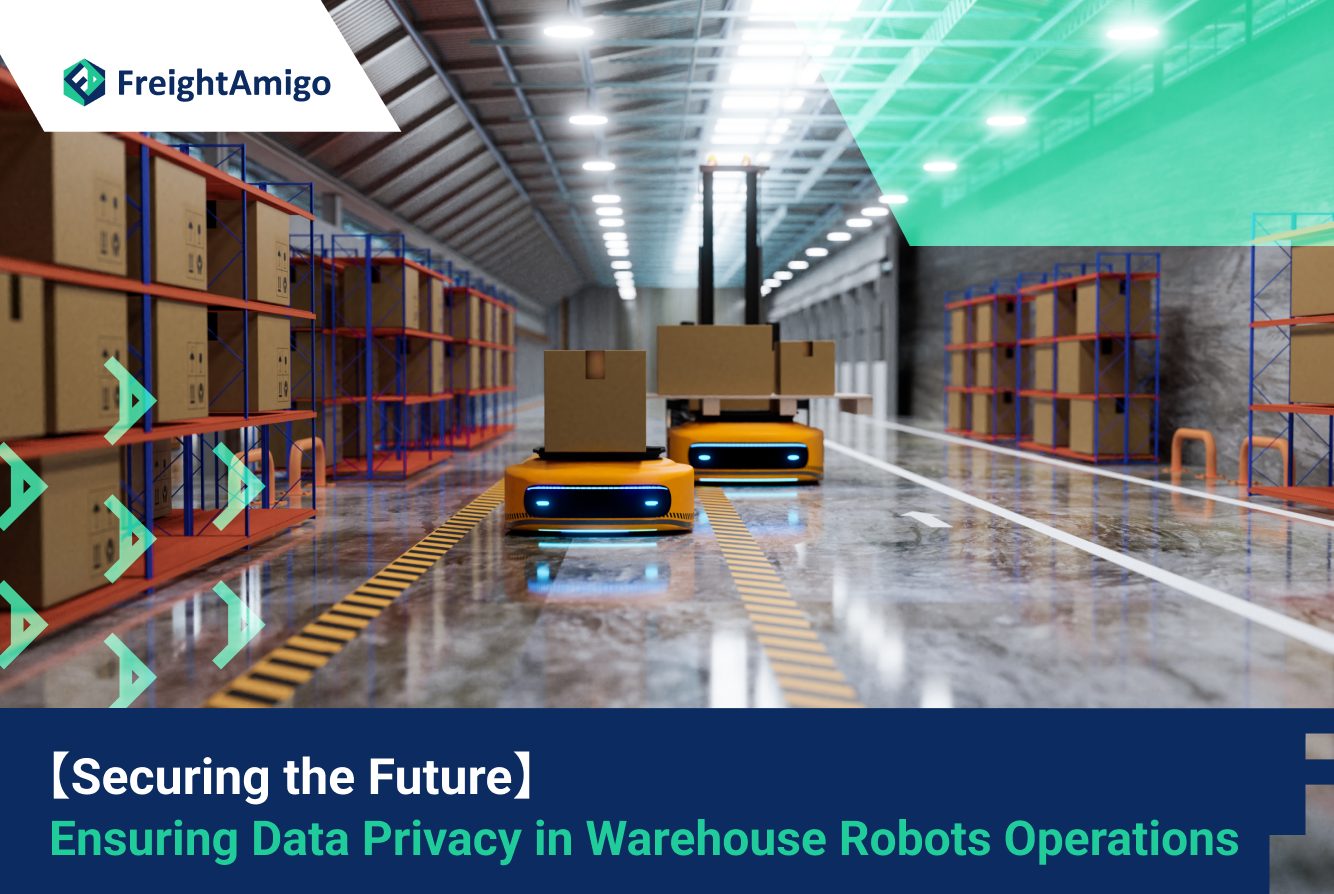In the age of automation, warehouse robots have become a crucial part of the supply chain industry. They perform tasks like picking and packing, moving goods around, and even managing inventory. The advent of these robots has not only improved efficiency but also reduced the chances of human error.
The utilization of warehouse robots has transformed the face of the warehouse industry. These robots, equipped with advanced technology, offer the ability to perform tasks faster, more accurately, and with less need for human intervention. They have thus played a significant role in increasing productivity and reducing operational costs.
However, with the increasing reliance on warehouse robots, there arises a need to address the concerns related to data privacy and security. As these robots are internet-enabled and rely on data to function, they become a potential target for data breaches.
Author Name:Tiffany Lee – Marketing Analyst at FreightAmigo
Want to compare the best Express, Air Freight, Sea Freight, Rail Freight & Trucking rates so as to have better control on cost?
The Importance of Data Privacy in Warehouse Robotics
Data privacy is a crucial aspect of warehouse robotics. The robots are often connected to a centralized system that manages and controls their operations. This system holds a wealth of sensitive information, such as operation schedules, inventory details, and other logistics-related data.
A breach in this data can lead to significant losses. For instance, unauthorized access to operation schedules can disrupt the entire supply chain. Similarly, access to inventory data can lead to theft or sabotage. Therefore, ensuring data privacy in warehouse robotics is not only crucial for smooth operations but also for maintaining the integrity of the supply chain.
Moreover, with the increasing implementation of IoT (Internet of Things) in warehouse operations, the importance of data privacy has become even more pronounced. IoT devices collect and transmit a huge amount of data, making them a prime target for cybercriminals. Ensuring the privacy of this data is critical for maintaining a safe warehouse.
The Current State of Security in Warehouse Operations
The security of warehouse operations, particularly with regards to warehouse robots, is a growing concern. While companies have started recognizing the importance of data privacy, many are still lagging in implementing robust security measures.
Currently, the focus is primarily on the physical security of warehouses. Companies invest heavily in CCTV cameras, alarm systems, and other security equipment. However, the security of data, especially in warehouse robotics, often gets overlooked.
This lack of focus on data security can be attributed to the misconception that cyber threats are less damaging than physical threats. However, the reality is that a data breach can have far-reaching consequences. It can disrupt operations, lead to financial losses, and even damage a company’s reputation.
Understanding the Risks: Data Privacy Concerns in Warehouse Robots
Warehouse robots, like any other internet-enabled device, are susceptible to various security risks. These risks include unauthorized access, data theft, and even the potential for sabotage. Understanding these risks is the first step towards ensuring a safer warehouse.
One of the primary risks is unauthorized access. This can occur when an unauthorized individual gains access to the central system controlling the robots. With this access, the individual can manipulate the robots’ operations, leading to disruption and potential losses.
Data theft is another significant risk. As warehouse robots collect and transmit data, they become a potential target for data theft. Cybercriminals can hack into the system and steal sensitive information, such as inventory details and operation schedules.
The potential for sabotage is another risk. In this scenario, a cybercriminal could potentially take control of the robots and cause them to malfunction or even cause physical damage to the warehouse.
Implementing Security Measures in Warehouse Robots Operations
To mitigate the risks associated with warehouse robots, companies need to implement robust security measures. These measures should aim to protect the data and ensure the smooth functioning of the robots.
Firstly, companies should invest in secure network infrastructure. This includes implementing firewalls, using secure communication protocols, and ensuring regular updates and patches to the system.
Secondly, access control measures should be in place. This means only authorized individuals should have access to the central system controlling the robots. Additionally, strong authentication methods, such as two-factor authentication, should be employed to prevent unauthorized access.
Finally, regular security audits and vulnerability assessments should be carried out. These assessments can help identify potential security gaps and provide recommendations for improvements.
Future Trends: The Role of Data Privacy in the Future of Warehouse Robots
As technology continues to advance, the role of data privacy in warehouse robots will become even more crucial. Future trends suggest a growing reliance on data and connectivity, making data privacy a top priority.
One such trend is the increasing use of AI (Artificial Intelligence) in warehouse operations. AI can help optimize operations and improve efficiency. However, it also increases the amount of data being collected and processed, thus raising data privacy concerns.
Another trend is the increasing interconnectivity of devices, known as the Internet of Things (IoT). As more devices become interconnected, the potential for data breaches increases. Therefore, ensuring data privacy will become even more critical.
In conclusion, data privacy is an essential aspect of warehouse robotics. As the reliance on these robots grows, so does the need for robust security measures. By understanding the risks and implementing appropriate security measures, companies can ensure a safer warehouse and secure the future of warehouse robots.
Conclusion
In the era of digital transformation, warehouse robotics plays a pivotal role in enhancing efficiency and productivity. However, with the rising dependency on these robots, the importance of data privacy becomes paramount. While the current state of security in warehouse operations leaves room for improvement, understanding the risks associated with data privacy in warehouse robots and implementing robust security measures can help secure the future of warehouse operations. The future trends further emphasize the need for prioritizing data privacy in the rapidly evolving domain of warehouse robotics.
There are different options for cargo transportation. If you want to choose the most convenient and suitable solution, it is best to have the full support of logistics experts! If you are planning to ship goods overseas, please go to the FreightAmigo page for inquiries.
===
Read More:
Embracing Industry 4.0: The Pivotal Role in Shaping the Future of Factory Automation
Mastering Purchase Order Management: The Role of Supplier Relationship Management
===
If you have any inquiries on logistics/supply chain, feel free to contact FreightAmigo now:
Chat with us online OR
Phone : +852 28121686
WhatsApp: +852 27467829









































